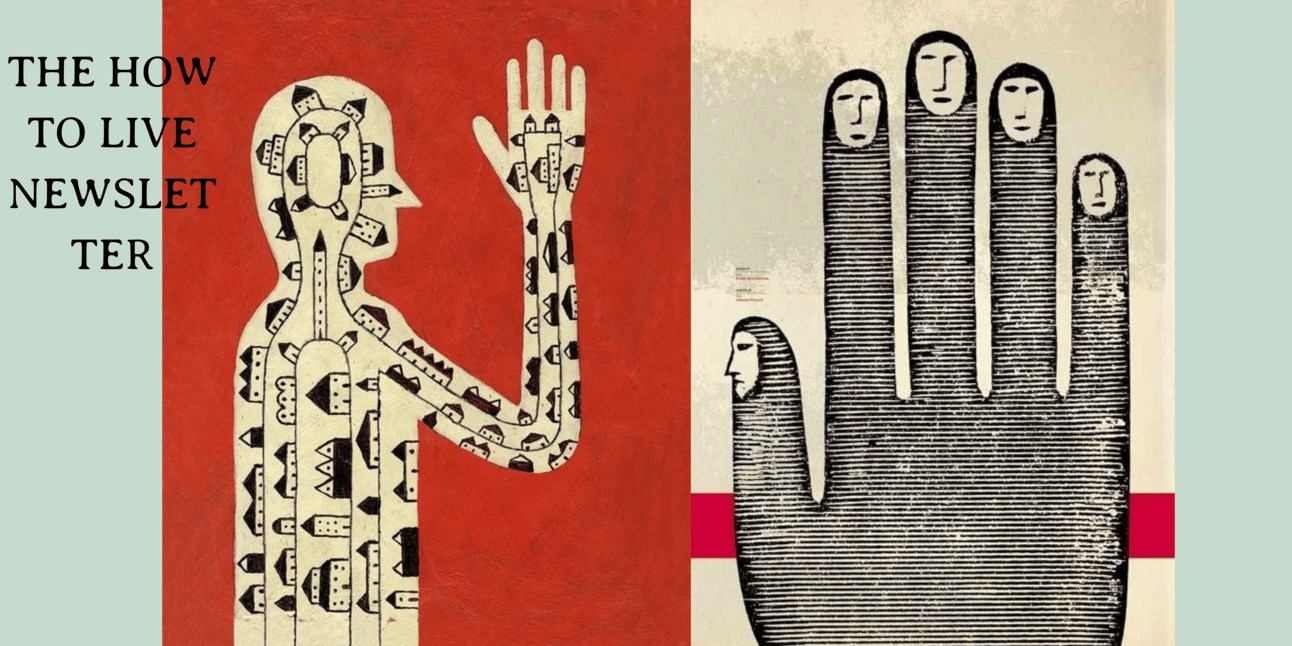Hi {{ First Name | friend }}!
If you missed November’s summary, find it here: TL;DR
Last week’s piece: This Secret Insight of Failure is the Key to Success.
PAYING SUBSCRIBERS…our next monthly ZOOM is Dec 21st at 8 pm. RSVP for the link.
If this work is valuable and you’d like to help sustain it, please consider upgrading or donating. Your contributions keep How to Live alive.
The HOW TO LIVE merch store is NOW OPEN!
Do You Ever Feel Unreal, Like You're Separated From Yourself?
You’re going about your everyday business, and seemingly, out of nowhere, you have an odd, dislocated sensation. You look down at your limbs; they feel and look unfamiliar and separate from you. Enough that you wonder, “Are these even mine?”
Or, you feel yourself floating away and up to the ceiling, where you seem to cling, balloon-like, staring down at yourself like you’re in a different tense—the third person—watching yourself in the scene below.
Perhaps you’ve had the unnerving experience of feeling like the world around you is a cardboard cutout or a board game, and everyone, including you, is just a piece being played.
If these descriptions sound familiar, you may have dissociated.

Martin Jarrie
Dissociation means to emotionally detach from your immediate surroundings enough that you feel a sensation of being disconnected, separate, and apart.
Daydreaming is a type of dissociation. So is fantasizing, but as long as they don’t negatively interfere or disrupt your daily existence, they are not considered disordered.
While there are many types of dissociative disorders, including Dissociative Identity Disorder (DID), today’s focus is on two particular types of dissociation: depersonalization and derealization.
These terms can create confusion, so let’s sort them out.
My most profound insights don't go in the free version—they're distilled from my 27 years in therapy, decades of independent study, and work as a mental health advocate. These frameworks and perspectives are reserved for readers committed to going deeper.
Join How to Live
Transformative concepts from a lifetime in therapy.
Get Immediate AccessA subscription gets you:
- All articles the moment they're published
- Instant access to the entire archive of 150+ posts
- Occasional bonus posts
- Invitations to seasonal in-person events
- Direct email access: get personalized resource recommendations + advice (ANNUAL PLAN ONLY)
- 15% off all workshops


